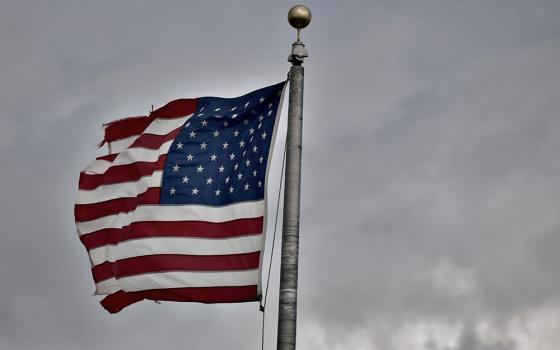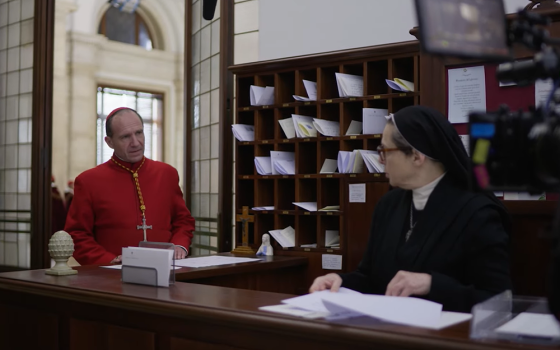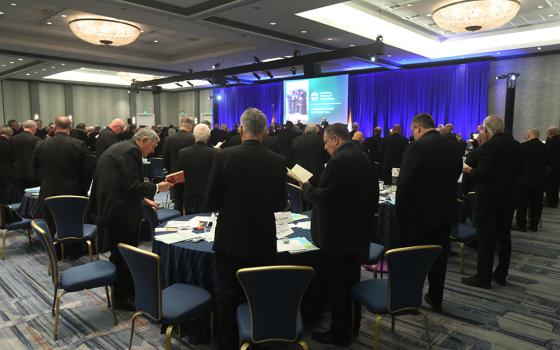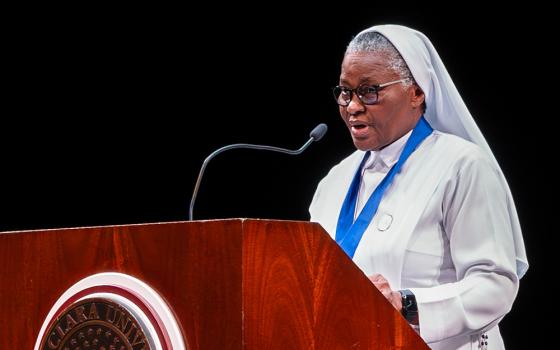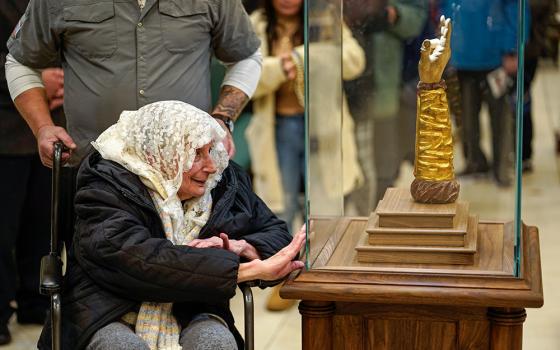Pope Francis speaks with Valentina Alazraki in this screen grab from an interview with Mexican news outlet N+ Dec. 12, 2023. (CNS photo/screen grab, N+)
Pope Francis has downplayed the discourteous comments toward him from Argentine President Javier Milei -- who previously accused the pope of preaching "communism" -- attributing the remarks to electioneering in his home country.
He also did not rule out visiting Argentina in 2024 -- having received an invite from Milei -- saying the trip was "pending," but not confirmed.
"In an election campaign, things are said 'in jest' -- they are said seriously, but they are provisional things, things that are used to create a bit of attention, but which later fall away by themselves," Francis said of Milei's election in comments to Mexican journalist Valentina Alazraki of N+ newscast.
"You have to distinguish a lot between what a politician says in the election campaign and what he or she is really going to do afterward, because then comes the moment of concrete things, of the decisions," the pontiff said.
A self-described anarcho-capitalist, who campaigned on shrinking the state, Milei assumed the presidency Dec. 10, swearing the oath of office in the country's congress, then delivering a sober address promising short-term pain and austerity to assembled supporters waving Argentine flags and chanting "freedom!"
"There is no possible alternative to austerity. Nor is there any room for discussion between shock and gradualism. All the gradualist programs ended badly, while all the shock programs -- except the one of 1959 -- were successful," Milei said, adding that the country has no money.
Milei's administration almost immediately announced tough measures, such as a currency devaluation of more than 50%, though economy minister Luis Caputo promised social spending would remain intact.
The austerity measures sparked concern among Catholics working with the poor.
"This [fiscal] adjustment was always going to be for the poorest to pay. That's the sense we have," said Fr. Roberto Ferrari, a priest in suburban Buenos Aires, who is part of the group Priests for the Option for the Poor.
Mieli plans to double social spending for the poorest to help them absorb the economic shock of his initial reforms, such as slashing the value of Argentina's currency, the peso, by more than 50% against the U.S. dollar. He did, however, assume office amid the dire financial crisis in the country. Annual inflation is expected to hit 200% this year and 40% of citizens live in poverty.
Advertisement
"The challenge before us is titanic … I'd rather tell you an uncomfortable truth than a comfortable lie," Milei said at the inauguration.
The newly sworn president promised in the campaign to dollarize the economy, swapping the Argentine peso for the U.S. dollar, but has moderated and adopted more orthodox policies, according to the Financial Times. He discarded other radical ideas, too, such as loosening gun laws and permitting the sale of human organs.
The moderation has extended to his posture toward Francis.
Milei previously branded Francis a "filthy leftist" and "a malignant presence on earth." But Francis called Milei after the Nov. 19 runoff election to offer congratulations. The pair spoke for eight minutes, according to press reports, with Milei calling the pope, "Your holiness" and inviting him to visit Argentina.
The Argentine bishops' conference has stayed cautiously silent since the election -- spare a 59-word statement congratulating Milei. Many church observers considered the pope's phone call to be the official response.
"The strongest word said on the subject of Milei was the Pope's call to Milei to congratulate him, to encourage him and to talk about the poor," Passionist Sr. Florencia Buruchaga told OSV News. "I think [with the call] that's that."
Milei was brought up as a Catholic, but said he is interested in converting to Judaism, making meaningful gestures at the beginning of his presidency, like presenting Ukraine's President, Volodymyr Zelenskyy, who is a Jew, with a menorah when receiving him at the presidential palace as a guest for Mieli's inauguration. He also wants to move Argentine's embassy in Israel to Jerusalem from Tel Aviv.
Francis told N+ that a trip next year to Belgium is confirmed, while visits to Polynesia and Argentina are pending. "We'll see how things turn out," he said. "But over time, I'm getting back to things," he added.
The pope has not visited Argentina since his election in 2013. Church observers say the pope has probably stayed away to avoid being pulled into Argentina's messy politics. But it's an absence not unnoticed by many Argentines, who have wondered aloud why he hasn't visited.
"I think that he is not going to miss coming [to Argentina] due to the president," said Ferrari. "He has to come if we want to rebuild social and community ties. It seems to me that it is important."
